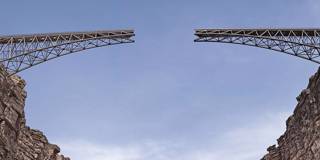A new book by a former chairman of the US Council of Economic Advisers under Republican President George W. Bush sounds as though it could have been written by a social democrat. There is common ground in the recognition that mass flourishing requires participation, not protectionism.
BERKELEY – In the history of modernity, the real sea change came in 1870, with what the Nobel laureate economist Simon Kuznets called “Modern Economic Growth.” Since then, humanity’s technological capabilities have roughly doubled every 35 years or so, revolutionizing the economy with each generation, and then revolutionizing it again with the next one.
Combined with the market economy and modern capitalism, technological progress has given rise to extraordinarily efficient new ways of making old and new things. But if your life was centered around making old things the old way, you learned the hard way what Joseph Schumpeter meant when he called modern capitalism “the perennial gale of creative destruction.” Moreover, in a market society, the technological forces driving the “destruction” tend to be amplified, because property rights are the only things that matter, and some property rights turn out to be more valuable than others.
This naturally creates social and political tensions. People generally believe that they should have more, and more varied, rights than merely those conferred by property ownership. As such, there is prevailing disillusionment with the message of the past few decades, which has amounted to: “The market giveth, the market taketh away: blessed be the name of the market.”

BERKELEY – In the history of modernity, the real sea change came in 1870, with what the Nobel laureate economist Simon Kuznets called “Modern Economic Growth.” Since then, humanity’s technological capabilities have roughly doubled every 35 years or so, revolutionizing the economy with each generation, and then revolutionizing it again with the next one.
Combined with the market economy and modern capitalism, technological progress has given rise to extraordinarily efficient new ways of making old and new things. But if your life was centered around making old things the old way, you learned the hard way what Joseph Schumpeter meant when he called modern capitalism “the perennial gale of creative destruction.” Moreover, in a market society, the technological forces driving the “destruction” tend to be amplified, because property rights are the only things that matter, and some property rights turn out to be more valuable than others.
This naturally creates social and political tensions. People generally believe that they should have more, and more varied, rights than merely those conferred by property ownership. As such, there is prevailing disillusionment with the message of the past few decades, which has amounted to: “The market giveth, the market taketh away: blessed be the name of the market.”